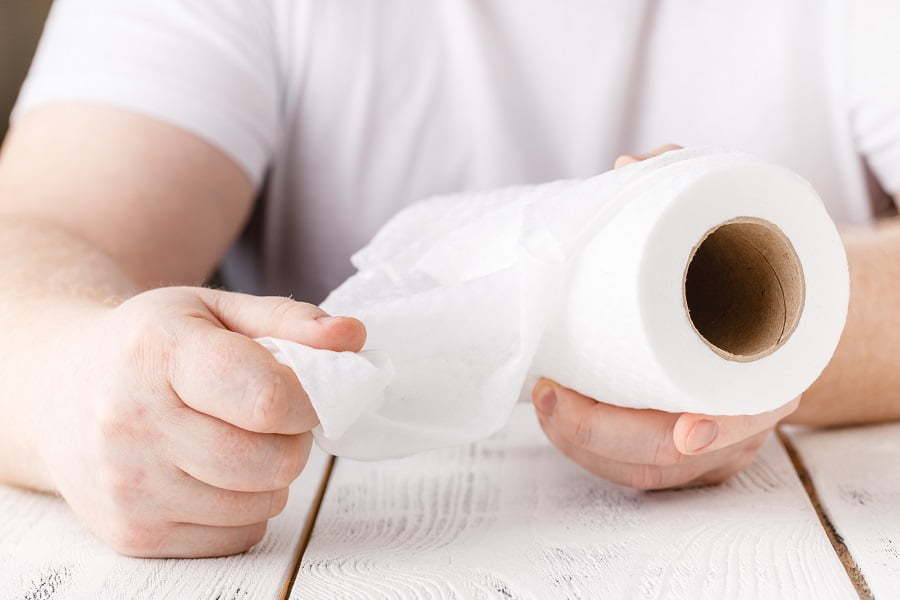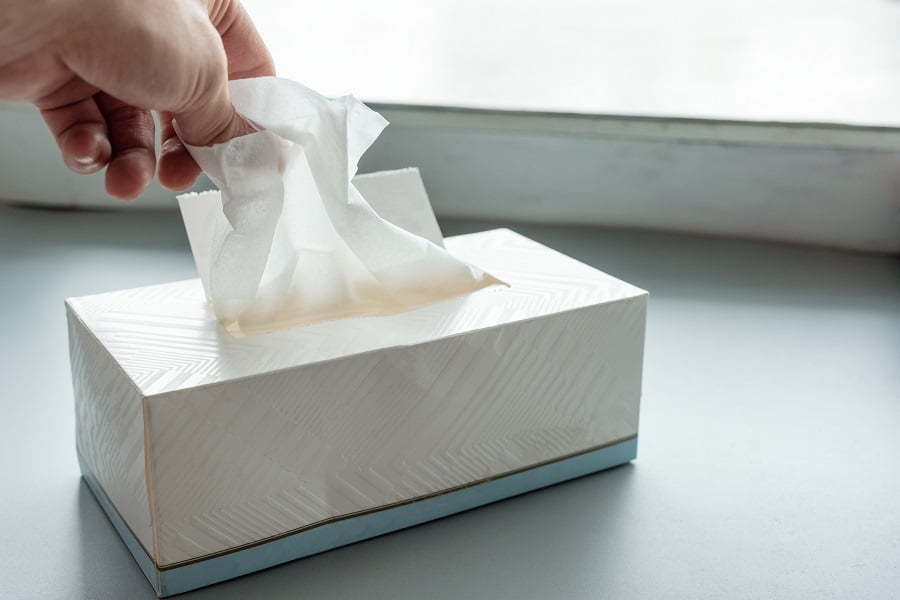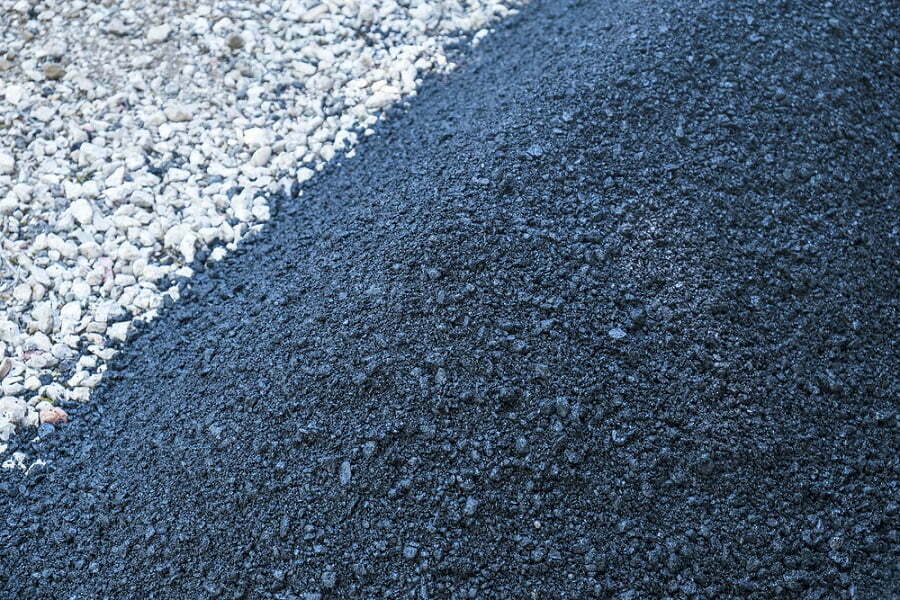Last updated on
The short answer is no, you shouldn’t attempt to recycle paper kitchen towels. We delve deeper into this issue to find out why exactly. Read on!
Recycling is one of the most practical measures humans can take to control the levels of carbon dioxide in the air, protect the environment, and limit the growth of landfills. Unfortunately, most people still cannot differentiate between recyclable and non-recyclable household materials. Are paper kitchen towels recyclable? That is a matter of debate, and I bet only a handful can get the right answer.
Despite many people practicing environmental-friendliness, recycling rates remain very low. Something people fail to understand is that it takes a piece of non-recyclable material to cause the rest of the batch to get disposed of in landfills. A non-recyclable can, in recycling, indicates to the relevant authorities that there is a lot of non-recyclables in the bags. They are left with no other choice but to refuse the bags instead of sorting them out.
Reasons Why You Should Not Attempt to Recycle Kitchen Towel

Kitchen towels, paper napkins, and tissues are made from paper. They are not reusable. They are typically used in foodservice and may contain food wastes and other substances that cannot be cleaned in the recycling process. The used kitchen towels should also be mixed with other dry, clean paper, such as newspapers, magazines, journals, etc. The towel needs to be thrown in the rubbish. Recycling experts also encourage householders not to recycle the items but use them purposely before disposing of them.
There are a lot of people who harm the environment unknowingly. They think that they are making the world a better place by tossing paper towels in the recycle bin. That’s a bad practice if you are keen on conserving the surrounding. What they don’t understand are the huge environmental concerns associated with these disposable items.
Food Waste and Grease
Most dining establishments use kitchen towels to service their guests. That means that the towels come in contact with all types of foods and grease. Recycling plants can clean the paper roll, but trying to separate the oil and other dirt from the fiber is virtually impossible.
The recyclable waste undergoes a mixing property where it becomes slurry. The paper is then pressed into sheets, followed by a drying process. If the mixture had grease, it could not be extracted at the stage. As the new batch continues to dry, oily and greasy patches will start to appear. That’s because oil or grease is not soluble in water.
Kitchen towels, paper napkins, and tissue, or any other product that comes into contact with food need to be trashed in the bin. That approach enables recycling authorities to avoid mixing recyclable and non-recyclable materials. That alleviates contamination of recyclable kitchen towels.
Every Cycle = Lower Paper Quality
One of the significant concerns when recycling paper towels and napkins are that the paper under recycling was made of recycled material. Hence, the fabric has undergone recycling of several items. With every cycle, the fibers in the form become shorter. By the time they are manufactured as new rolls, the fibers are too short to be recycled once more.
On the other hand, you need not use paper towels extravagantly to alleviate landfills. There are several approaches you can use to lead an environmental-friendly and more sustainable measure. For instance, you can decide to reduce the number of towels you use in the kitchen to prevent them from building up in the bin.
As the paper towel contains shorter and shorter fibers, they can do an excellent job creating a compost pile. That happens mostly when the paper has no bleach or is not too soiled. Some health experts also encourage householders not to handle compost paper when sick. According to the experts, you need to avoid paper towels made of bleached fibers. The products contain traces of chlorine compounds that may otherwise lead to deteriorated health and the environment.
Having a kitchen designed in such a way that you have a place to trash recyclable products and another to put non-recyclable materials without taking too much of your kitchen space can help in responsible disposal of kitchen waste. Also, having kitchen towel holders for storing reusable kitchen towels is a perfect idea for hand and dish towels. For such and more amazing kitchen design ideas, consult your professional home remodeling contractor.
Other Non-Recyclable Materials

Recycling is one of the mind-boggling trash-treatment processes. A wide range of items look recyclable, but they are not. Below are some of the things that you need to toss in the trash instead of the recyclable bin.
Takeaway coffee cups
Coffee cups are made from paper. People think that they are recyclable. No, they are not. In fact, the cup features a special coating to enable the food item stored in it to remain warm. Another issue about coffee cups is that the outer cover that comes in contact with it can be recycled. Remember, only the cover should undergo recycling.
Wrapping material
With wrapping paper, recyclability depends on whether you are handling recyclable or non-recyclable paper. The shiny, glittery, and foil are not recycled, because they cannot be dried or mulched. The recycled paper will eventually start glittering, and it gets to every inch.
Books
Just like coffee cups, people tend to think that a book is recyclable. They are not. The pages are held together by glue, which can harm the pulping process. That may cause contamination of a whole batch. That means that a significant portion of work is going to waste.
Sticky Tape
Professional recyclers typically avoid any waste material that has sticky tape. The product is made of plastic, which is not recyclable. It limits the full mulching. Before emptying them into the rubbish, search thoroughly to ensure there is no clear or brown tape within the area.
Tissue paper
Tissue paper cannot be recycled because, as mentioned above, it is made of already cycled material. The tissue is made of recycled material, resulting in short fibers that can impact the pulping process. The tissue is often used for various purposes apart from sanitary conditions. That has made the paper lose its popularity among recyclers.
The environment is critical to our life and the planet. Recycling is an excellent means of demonstrating your environmental awareness and sustainability. Household items, such as paper towels and napkins, should not be recycled. That’s why recommend that you double-check thrice to the nearest recycling claim. That allows you to familiarize yourself with the items that you can recycle and the non-recyclable.
Table of Contents



![How to Sell Leftover Building Materials? [Solved]](https://buildgreennh.com/wp-content/uploads/2022/07/sell-leftover-building-materials.jpg)
